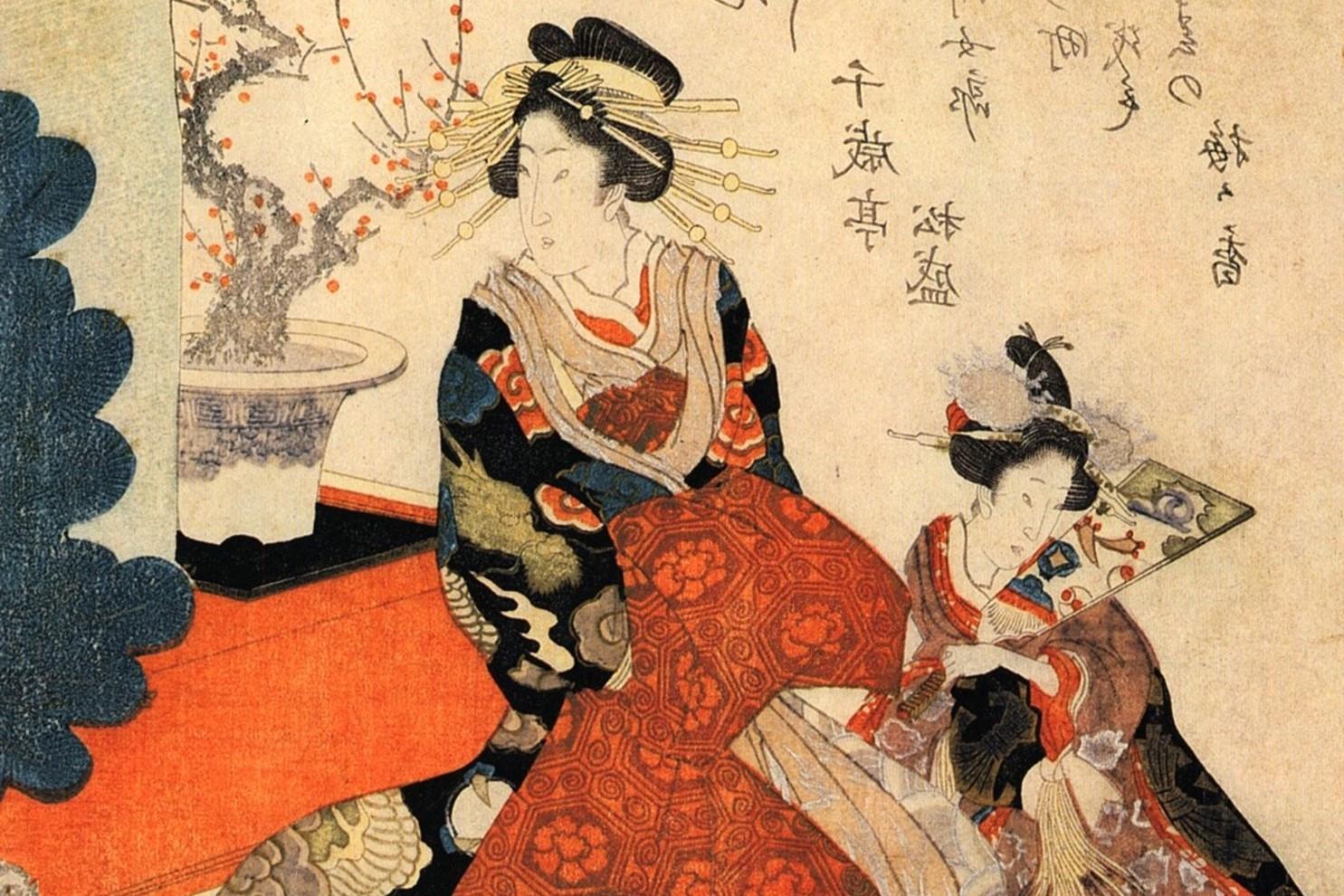Unlock The Secrets Of Traditional Japanese Art Forms

Have you ever wondered what makes traditional Japanese art forms so captivating? From the delicate strokes of calligraphy to the intricate designs of origami, these art forms have fascinated people for centuries. Each piece tells a story, reflecting Japan's rich history and culture. Whether it's the serene beauty of a bonsai tree or the vibrant colors of a kimono, there's something magical about these creations. They offer a glimpse into a world where patience, precision, and creativity come together. Ready to dive into the enchanting world of Japanese art? Let's explore the timeless beauty and craftsmanship that make these art forms truly unique.
The Allure of Ikebana
Ikebana, the Japanese art of flower arrangement, is more than just placing flowers in a vase. It’s about harmony, balance, and a deep connection with nature. Here are some places to experience the beauty of Ikebana.
Sogetsu Kaikan, Tokyo
Located in the heart of Tokyo, Sogetsu Kaikan offers classes and exhibitions. The modern approach to Ikebana here will leave you inspired.Ikenobo Headquarters, Kyoto
As the oldest school of Ikebana, Ikenobo in Kyoto provides a traditional experience. Their workshops and demonstrations are a must-see.Ohara School of Ikebana, Osaka
Known for its naturalistic style, the Ohara School in Osaka offers a unique perspective on flower arrangement. Their seasonal exhibitions are breathtaking.
The Grace of Tea Ceremony
The Japanese tea ceremony, or "chanoyu," is a ritualistic preparation and consumption of matcha. It embodies simplicity, respect, and tranquility. Discover the essence of this art form at these locations.
Urasenke Chado Research Center, Kyoto
Urasenke is one of the main schools of tea ceremony. Their classes and tea gatherings provide an authentic experience.En Tea House, Tokyo
En Tea House offers a modern twist on the traditional tea ceremony. Their sessions are both educational and relaxing.Happo-en, Tokyo
Happo-en’s beautiful garden setting makes it an ideal place to enjoy a tea ceremony. Their tea house offers a serene escape from the city.
The Intricacy of Origami
Origami, the art of paper folding, transforms a simple sheet of paper into intricate designs. It’s a practice of patience and creativity. Explore the world of origami at these spots.
Origami Kaikan, Tokyo
This center is dedicated to the art of paper folding. They offer workshops and exhibitions that showcase both traditional and contemporary origami.International Origami Center, Kyoto
Located in Kyoto, this center provides classes and has a vast collection of origami works. It’s a haven for paper folding enthusiasts.Origami House, Tokyo
A small but charming place, Origami House offers classes and has a shop with a wide range of origami paper and books.
The Elegance of Calligraphy
Japanese calligraphy, or "shodo," is the artistic writing of kanji characters. It’s a meditative practice that emphasizes beauty in simplicity. Experience the art of shodo at these venues.
Tokyo Calligraphy Education Association
This association offers classes for all levels. Their exhibitions display stunning works of calligraphy.Kobayashi Calligraphy Museum, Tokyo
A museum dedicated to calligraphy, it houses a collection of historical and contemporary pieces. Their workshops are highly recommended.Kyoto National Museum
While not exclusively for calligraphy, this museum often features exhibitions that include beautiful examples of shodo. Their educational programs are excellent.
The Drama of Noh and Kabuki
Noh and Kabuki are traditional Japanese theater forms that combine drama, music, and dance. They offer a glimpse into Japan’s rich cultural history. Witness the spectacle at these theaters.
National Noh Theatre, Tokyo
This theater offers regular performances and workshops. It’s a great place to learn about the history and techniques of Noh.Kabuki-za, Tokyo
The premier venue for Kabuki, Kabuki-za hosts daily performances. Their guided tours provide insight into this dramatic art form.Minami-za Theatre, Kyoto
One of the oldest Kabuki theaters, Minami-za offers a traditional setting. Their performances are a blend of history and entertainment.
Embracing Traditional Japanese Art Forms
Traditional Japanese art forms offer a unique glimpse into Japan's rich history and culture. From origami to ikebana, each art form tells a story and preserves ancient techniques. Practicing these arts can be a rewarding experience, allowing you to connect with Japanese traditions on a deeper level. Whether you're folding paper cranes or arranging flowers, these activities promote mindfulness and creativity.
Exploring calligraphy and tea ceremonies can also provide a sense of calm and appreciation for the beauty in simplicity. These art forms are not just hobbies; they are ways to understand and respect a culture that values precision, patience, and harmony.
Next time you have a chance, try your hand at one of these traditional arts. You'll find that they offer more than just a creative outlet—they provide a meaningful connection to Japan's past and present.

